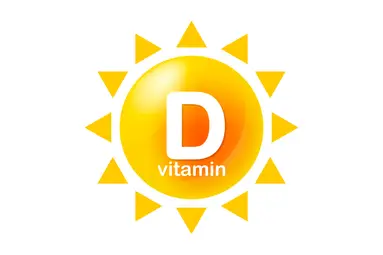Top 5 Vitamin D Fruits and Vegetables You Should Know
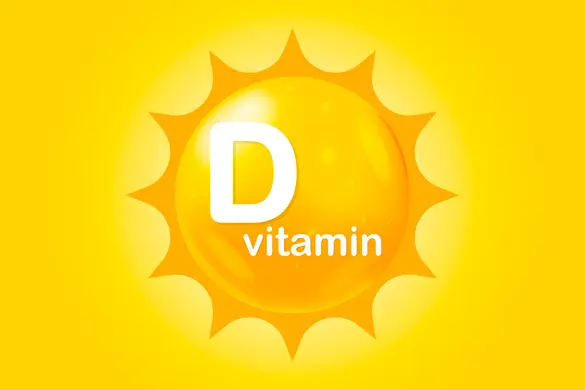
Top 5 Vitamin D Fruits and Vegetables You Should Know
Posted on 14th Apr, 2023
Vitamin D is a fat-soluble vitamin that plays a crucial role in the body's absorption and metabolism of calcium and phosphorus. It also helps to regulate the immune system and maintain healthy bones, teeth, and muscles.
Vitamin D is produced by the body when the skin is exposed to sunlight, and it can also be obtained from dietary sources such as fatty fish, egg yolks, and fortified foods.
Here is the list of the 5 best Vitamin D Fruits and Vegetables in India
Spinach:

Spinach is a leafy green vegetable that is rich in nutrients, including vitamin D. One cup of cooked spinach contains about 6% of the daily recommended intake of vitamin D.
Broccoli:

Broccoli is a cruciferous vegetable that is packed with nutrients, including vitamin C, vitamin K, and small amounts of vitamin D. One cup of cooked broccoli provides about 3% of the daily recommended intake of vitamin D.
Mushrooms:

While not technically a vegetable, mushrooms are one of the few plant-based sources of vitamin D. They naturally contain vitamin D2, which can help boost your intake of this essential nutrient.
Sweet Potatoes:

Sweet potatoes are a nutritious root vegetable that contain small amounts of vitamin D, with one medium-sized sweet potato providing about 3% of the daily recommended intake.
Kale:

Kale is another leafy green vegetable that contains small amounts of vitamin D, with one cup of cooked kale providing about 5% of the daily recommended intake.
Benefits of Vitamin D
There are various health benefits of vitamin D for the body, including:
- Strong bones: Vitamin D helps in the absorption of calcium and phosphorus, which are essential for maintaining strong bones.
- Improved immune function: Vitamin D helps regulate the immune system and can reduce the risk of infections and autoimmune diseases.
- Reduced risk of depression: Low levels of vitamin D have been linked to an increased risk of depression, and supplementing with vitamin D may help improve mood.
- Reduced risk of chronic diseases: Adequate vitamin D levels may help reduce the risk of chronic diseases such as type 2 diabetes, cardiovascular disease, and certain types of cancer.
- Improved muscle function: Vitamin D is important for muscle function and may improve strength and balance in older adults.
- Reduced risk of falls: Supplementing with vitamin D may reduce the risk of falls and fractures in older adults.
- Improved cognition: Vitamin D may play a role in cognitive function and may help reduce the risk of dementia and Alzheimer's disease.
- Improved respiratory health: Vitamin D may help reduce the risk of respiratory infections and improve lung function in people with chronic respiratory diseases.
Vitamin D: Side Effects and Warnings
While vitamin D is generally safe when taken in recommended doses, excessive intake of vitamin D can cause toxicity, which can lead to symptoms such as nausea, vomiting, constipation, weakness, weight loss, and in severe cases, kidney damage.
It's important to note that taking too much vitamin D over a long period of time can increase calcium levels in the blood, which can cause a condition called hypercalcemia. This can lead to symptoms such as frequent urination, thirst, abdominal pain, bone pain, and confusion.
It's also important to talk to your doctor before taking vitamin D supplements if you have certain medical conditions or are taking certain medications, as vitamin D can interact with some medications and can affect certain medical conditions. For example, vitamin D supplements can interact with certain medications used to lower cholesterol levels, and can also increase calcium levels in people with certain medical conditions such as hyperparathyroidism or sarcoidosis.
Conclusion
Vitamin D is an important nutrient that plays a crucial role in many bodily functions. It is essential for bone health, immune system function, and overall well-being. Adequate vitamin D intake has been associated with a reduced risk of many chronic diseases, including osteoporosis, heart disease, and certain types of cancer.
However, taking too much vitamin D can lead to toxicity and adverse effects. It is important to follow the recommended daily intake and consult a healthcare professional before taking vitamin D supplements, especially if you have any underlying medical conditions or are taking medication.
FAQs
What fruits and vegetables are naturally high in vitamin D?
The fruits and vegetables containing vitamin D are Spinach, Kale, Okra, Oranges, Soybeans, Banana, Mushrooms, Broccoli, White Radish and White Beans.
What role do vitamin D fruits and vegetables play in bone health?
Incorporating fruits and vegetables containing vitamin D is very beneficial for building strong bones in children and maintaining bone strength in adults. It is because vitamian D is important to facilitate calcium and phosphate absorption to support bone formation and supports muscles to prevent falls.
Can vitamin D-rich fruits and vegetables replace the need for vitamin D supplements?
Yes, if you can obtain recommende daily amount of vitamin D from a balanced diet, your body don’t need any vitamin D supplements. Hence, fruit and vegetables rich in vitamin D are the ideal approach to meet your calcium needs while vitamin D supplements should only be considered if necessary to achieve the recommended daily allowance.
What are the top natural sources of vitamin D in fruits and vegetables?
Broccoli, Soy Beans, Figs, and Oranges are among the top natural sources of vitamin D in fruits and vegetables.
Can vitamin D-rich fruits and vegetables help prevent vitamin D deficiency?
Yes, including fruit and vegetables rich in vitamin D, such as certain fish, egg yolks, and mushrooms, into your diet can help reduce or prevent vitamin D deficiency.
Can vitamin D-rich fruits and vegetables help support the immune system?
Vitamin D in its active form is known to regulate the inflammatory response and boosting the production of microbe-fighting proteins in immune cells. Hence, consuming vitamin D rich fruits and vegetables can support the overall immune system function.
What is the recommended daily intake of vitamin D from fruits and vegetables?
The recommended daily intake for vitamin D is 10 mcg to 20 mcg. However, the intake of vitamin D from vegetables and fruits is very low, which inunciates the need of sun exposure and vitamin D supplements.
Are there specific vitamin D-rich fruits and vegetables suitable for children?
Fruits and vegetables like mushrooms, egg yolks, fatty fish, and fortified products (milk, soy milk, cereals) can contribute to children's vitamin D intake.
How can you incorporate vitamin D fruits and vegetables into your daily diet?
You can include fruit and vegetables high in vitamin d through your meals by using fortified orange juice, cereals, oatmeal, and making recipes from fatty fish, egg yolks, and vitamin D-fortified milk and grains.
Are there specific fruits and vegetables that are rich in vitamin D suitable for pregnant women?
Pregnant women can benefit from vitamin D-rich sources like fortified milk and orange juice, which contribute to the development of the baby's bones and teeth.
How do these fruits and vegetables compare to sunlight exposure for vitamin D production in the body?
While sunlight is a natural source of vitamin D, various factors affect skin's ability to produce it. Hence, consuming Vitamin D enriched vegetables is crucial, especially for those with limited sun exposure due to factors such as age, location, and sunscreen use.

Health articles from our experts

Signs & Symptoms Of Vitamin D Deficiency In India
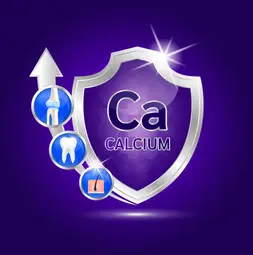
Signs & Symptoms Of Calcium Deficiency

10 Sources Of Vitamin D For Vegetarians

Top 10 Benefits of Ashwagandha Leaves
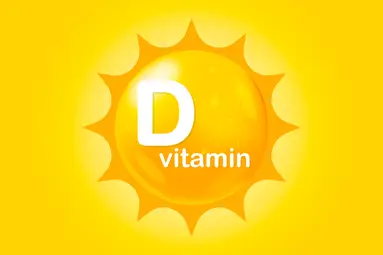
Top 5 Vitamin D Fruits and Vegetables You Should Know

Neurological symptoms of Vitamin D deficiency

10 Fruits rich in Vitamin K

Benefits of Ashwagandha for Men
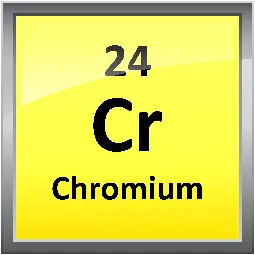
Signs and Symptoms of a Chromium deficiency
